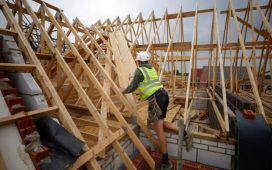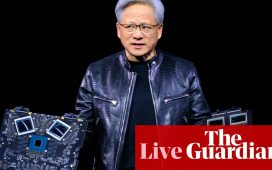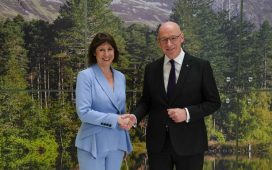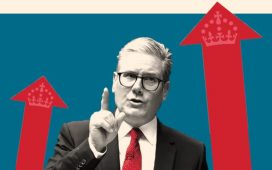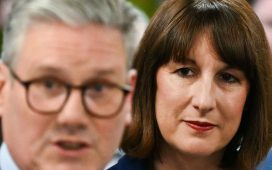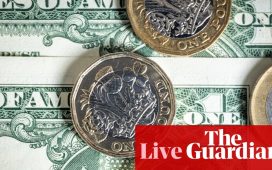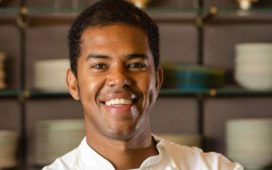Sir Keir Starmer will on Thursday “fire the starting gun” on rebuilding Britain’s troubled relationship with Europe, when he hosts a meeting of over 45 European leaders with illicit migration at the top of the agenda.
After the trauma of the 2016 Brexit vote and the political convulsions that followed, the new British prime minister will claim the meeting of the European Political Community at Blenheim Palace, Sir Winston Churchill’s birthplace, is a turning point.
Downing Street said Starmer wanted Britain to take “a more active and greater convening role on the world stage”, starting with the EPC, a forum focused on security issues but seen by many diplomats as a talking shop.
“The EPC will fire the starting gun on this government’s new approach to Europe,” Starmer said ahead of the meeting, adding it would focus on the need to co-operate on border security and to resist Russian aggression.
Starmer is seen by diplomats as having made a successful start on the world stage, notably by taking risks and opening up channels with foreign leaders who are viewed as highly controversial in his Labour party.
The UK prime minister was quick to telephone Donald Trump after the attempted assassination of the Republican presidential candidate, in an acknowledgment of the need to repair relations.
In 2018 David Lammy, the new foreign secretary, called Trump “a woman-hating, neo-Nazi-sympathising sociopath”, a view shared by some Labour MPs.
Meanwhile, Lammy made an early trip after Britain’s election on July 4 to Israel to meet Prime Minister Benjamin Netanyahu, while John Healey, defence secretary, held talks with Hungarian Prime Minister Viktor Orbán at last week’s Nato summit in Washington.
“We have defined our foreign policy as ‘progressive realism’ and we mean it,” said one ally of Lammy.
Seasoned diplomats welcomed the “realism” element of Labour’s approach and Starmer’s willingness to use his new electoral mandate to exert British influence.
Lord Kim Darroch, former UK ambassador to Washington, said: “He’s doing exactly what diplomats would recommend. You have to talk to people you disagree with as well as people you agree with.”
Starmer is expected to discuss Britain’s future relations with the EU on the margins of the EPC gathering, including the prospects for a UK-EU summit early next year, according to European officials.
Starmer will also hold a private dinner with Emmanuel Macron, French president, after the EPC meeting concludes, with illegal migration high on the agenda. Both leaders are likely to discuss the rise of populist parties in recent elections in France and the UK.
Lord Peter Mandelson, Labour peer and former European commissioner, said Starmer should take his time.
“He should identify common British and European interests and be clear that he wants to build respect and trust between the UK and EU,” he added. “But this does not require rushing into early goals, let alone a negotiation. Trust first, discussion second and then see what emerges.”
After the first EPC plenary session on Thursday, European leaders will break into working groups themed around migration, energy and defending democracy.
Starmer will attend the migration discussion, which Italian Prime Minister Giorgia Meloni and Albanian Prime Minister Edi Rama will chair.
While no formal communiqué is expected out of the EPC meeting, officials said Starmer hoped to build on an eight-point plan to tackle illegal migration to Europe, which was agreed at the forum’s last gathering in Grenada.
Defenders of the EPC, a brainchild of Macron that involves EU member states and other European countries, say the forum allows for more free-flowing conversations precisely because it does not aim at agreeing joint statements signed by all participants. One British official said it was a diplomatic “speed dating” event.
Brussels is pushing for a discussion on foreign interference, particularly Russian, to consider how Europe can “ensure a better operational co-ordination and response” to cyber attacks and disinformation, according to a discussion paper circulated among delegations and seen by the Financial Times.
Leaders will also discuss how illicit money flows that fund disinformation campaigns can be more effectively traced and stopped.
EU officials said they expected the recent, self-styled Ukraine peace mission by Orbán would be discussed on the margins of the EPC meeting. Since Hungary took up the EU’s rotating presidency at the beginning of this month, Orbán has made trips to Ukraine, Russia and China, and met with Trump.
EU officials have meanwhile said they are not willing to reopen the bloc’s Brexit agreements. They want the British government to commit to implementing the so-called Windsor framework about improving trading arrangements for Northern Ireland before looking at other areas to work on.
“We need to stop a bit and implement what is agreed,” said one EU official, adding the UK had yet to present any concrete proposals for deepening co-operation with the bloc.

